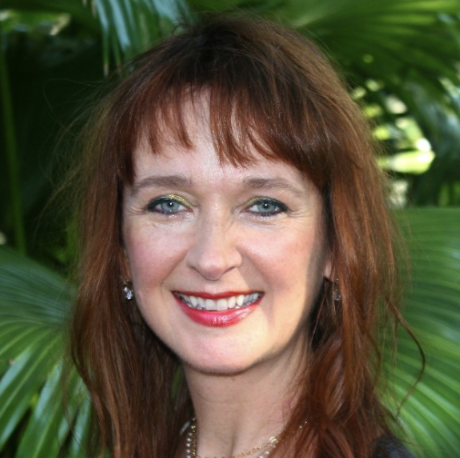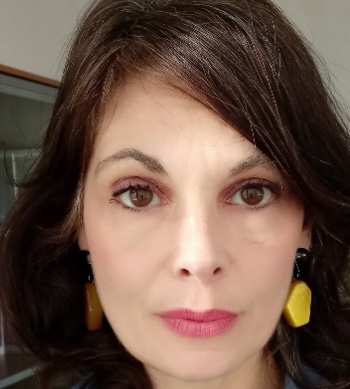Programme
Seminar programme (PDF format)
List of abstracts (PDF format)
Plenary sessions
Camilla Vasquez, University of South Florida

Storying Consumer Experiences: Narrativity in Online Reviews
Online consumer reviews represent a quintessential form of digital business communication, with consumers interacting with multiple audiences comprised of other consumers as well as business. While obligatory components for a digital text to be considered an online consumer review seems to be some balance of description and evaluation of a product, service or experience, there is also a strong tendency for many consumer-authors to rely on narrative structures in the crafting of their review texts (Vasquez, 2014). In this programmatic paper, I explore the questions of when, where, how, and for what purposes online review authors adopt a narrative structure. I engage with issues of how various multimodal digital affordances interact with narrativity, and I consider a range of digital reviews and review-like texts. From more prototypical, chronologically structured reviews appearing on dedicated review platforms (Vasquez, 2015), to reviewing activities found in other social media fora (Reddit), to newer, multimodal reviewing genres appearing on video sharing sites (YouTube, Tiktok), I argue that although reviewing genres seem to be evolving to become increasingly more hybrid, reviewers continue to rely on a range of narrative practices in the service of producing an compelling digital self, of connecting with their audience, and of organizing their content as they story their consumer experiences. I call for greater attention to the multimodal features that accompany narrative practices in online consumer reviews.
References
Vásquez, C. (2012). Narrativity and involvement in online consumer reviews: The case of TripAdvisor. Narrative Inquiry, 22 (1), 105-121.
Vásquez, C. (2014). The discourse of online consumer reviews. London: Bloomsbury.
Vásquez, C. (2015). Right now versus back then: Recency and remoteness as discursive resources in online reviews. Discourse, Context & Media, 9, 5-13
Alexandra Georgakopoulou-Nunes, King’s College London

Curated storytelling in/for the digital era: The case of story-formats
My starting point for this talk is that any study of contemporary, everyday life storytelling has to somehow grapple with & factor in the reality of the attested instrumentalization and curation of stories in a range of domains, in particular social media platforms. Following on from this, my aim is to provide a methodologically and analytically replicable framework for studying stories as curated activities, produced out of the entanglements of situated discourses about stories with (technological) affordances of given contexts of storytelling and the participants’ communicative practices. To explore these connections, I will report on my longitudinal study of the evolution of storytelling facilities on social media platforms. I will specifically introduce you to the technographic method I have employed, so as to uncover the processes through which stories become formatted, that is, typified, recognizable and normative activities. I will then tease out the key story-formats that I have documented across platforms and the multi-semiotic features (linguistic, textual, visual, auditory) within them. I will show how the curated formatting of stories results in a templatization of form and content that is replicated across languages and cultures, serving the enregisterment of stories and their tellers as ‘authentic’ and ‘relatable’. I will conclude with reflections on the current, intimate links of storytelling with notions of authenticity, that, although primarily instrumentalized by social media, permeate different contexts of storytelling.
Paola Catenaccio, University of Milan

Storytelling in corporate sustainability discourse: from narratives to Narratives and back
Over the last couple of decades, research into sustainability discourse has increasingly involved a narrative approach (Frank 2017), in tune with a more general “narrative turn” in the social sciences. Narrative approaches, however, are far from clearly defined, which has led to critiques of the very term “narrative”, which has been criticized for being used “as an umbrella term … lack[ing] analytical accuracy” (Reisigl 2021: 368). Indeed, an overview of sustainability literature featuring the lemmas narrative or storytelling in their titles suggests that these labels are understood in multiple ways, and that not all of these understandings sit comfortably with notions of narrative as defined in linguistics (most notably, text typology) or literary theory (particularly in narratology). Often, the meaning of ‘narrative’ seems to align with what in Discourse Analysis is referred to as Discourse (Big D; Gee 2015) – hence the reference to Narrative (Big N) in my title. On other occasions, by ‘narrative’ is meant ‘story’ – basically, a narratively structured recounting of an episode or anecdote. Still other times, the ‘story’ is future-oriented: it is about imagining futures – something that sustainability discourse has necessarily to do. Storytelling, on the other hand, would appear to often refer to strategies routinely implemented to create a culture of sustainability (Joosse et al 2023, following Stibbe 2021); but “stories” have also been shown to function as arguments in supporting a claim (Greco et al 2023), narratives having in fact considerable argumentative potential (Olmos 2017). This presentation will discuss the concepts, uses and interpretations of N/narrative(s) and storytelling in sustainability discourse, with a focus on the way in which such uses and conceptualisations contribute to the way in which the very notion of sustainability is understood and implemented.
References
Frank, A.K. 2017. What is the story with sustainability? A narrative analysis of diverse and contested understandings. Journal of Environmental Studies and Sciences 7: 310–323.
Gee, J.P. 2015. Discourse, Small d, Big D. In The International Encyclopedia of Language and Social Interaction (eds K. Tracy, T. Sandel an.d C. Ilie).
Greco, S., Mercuri, C., Cock, B. D., and Schär, R. 2023. Arguing through best practice: The role of argumentation from example in activists’ social media posts on sustainable fashion. Discourse Studies, 25(4), 530-548.
Joosse, S., Westin, M., Möckel, F., Keasey, H. and Lorenzen, S. 2023. Storytelling to save the planet: who gets to say what is sustainable, who tells the stories, and who should listen and change? Journal of Environmental Planning and Management
Olmos, P. 2017. Narration as Argument. Cham, Switzerland: Springer Verlag.
Reisigl, M 2021. ‘“Narrative!” I can’t hear that anymore’. A linguistic critique of an overstretched umbrella term in cultural and social science studies, discussed with the example of the discourse on climate change, Critical Discourse Studies 18(3): 368-386.
Stibbe, A. 2021. Ecolinguistics: Language, Ecology and the Stories We Live By. 2nd ed. London: Routledge.
Seminar programme
Thursday 16th May
1:00–2:00 Registration
2:00–2:30 Welcome address and conference opening - Giuseppe Balirano & Maria Cristina Gatti
2:30–3:00 Plenary Lecture 1: Storying Consumer Experiences: Narrativity in Online Reviews (Camilla Vasquez, University of South Florida)
3:00–3:30 Coffee break
3.30–6:00 Parallel sessions
6:00-7:00 ‘Think & Drink’ event
7:00-8:00 Guided city walk
Friday 17th May
9:00–9:30 Registration
9:30–10:30 Plenary lecture 2: Curated storytelling in/for the digital era: The case of story-formats (Alexandra Georgakopoulou, King’s College London)
10:30–11:00 Coffee break
11:00–1:00 Parallel sessions
1:00–2:00 Lunch
2:00–4:00 Parallel sessions
4:00–4:30 Coffee break
4:30–7:00 Assemblea Annuale AIA
8:00–10:00 Social dinner
Saturday 18th May
9:00–10:00 Plenary lecture 3: Storytelling in corporate sustainability discourse: from narratives to Narratives and back (Paola Catenaccio, University of Milan)
10:00–11:30 Parallel sessions
11:30–12:00 Coffee break
12:00–1:00 Parallel sessions
1:00–2:00 Final discussion and closing remarks
Other events
Walking tour (Thursday 16th)
The walking tour of Brixen-Bressanone will take place at 7pm.
Social dinner (Friday 17th)
The social dinner will take place on Friday 17th, from 8pm. The dinner will be at Traubenwirt, which is walking distance from the seminar venue. The final menu will be as follows:
Schlutzkrapfen dell’Alto Adige (Mezzelune di segale bio-regionale, ripiene di spinaci e ricotta, formaggio di montagna e burro ai pinoli).
Gulasch di manzo con tuberi stagionali e canederli di Speck
Strudel di mela su specchio di salsa vaniglia
The final cost for the social dinner is €50 per person, including drinks. This needs to be paid at the restaurant.